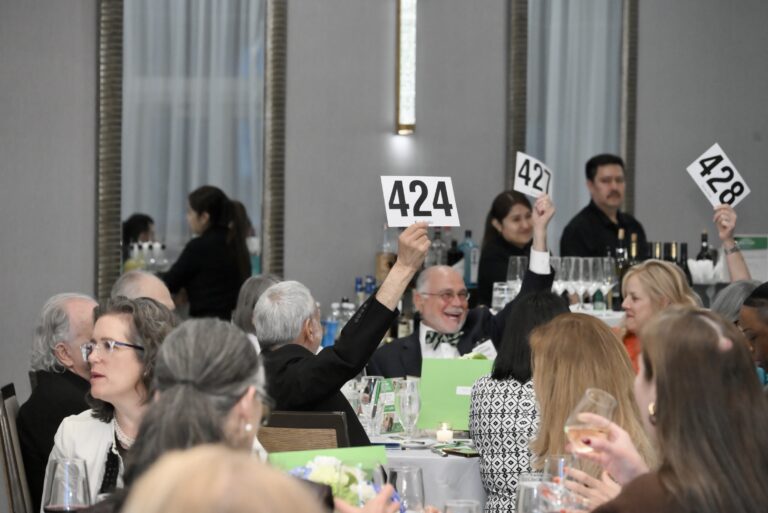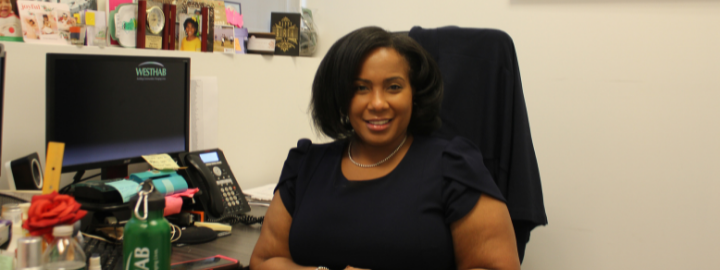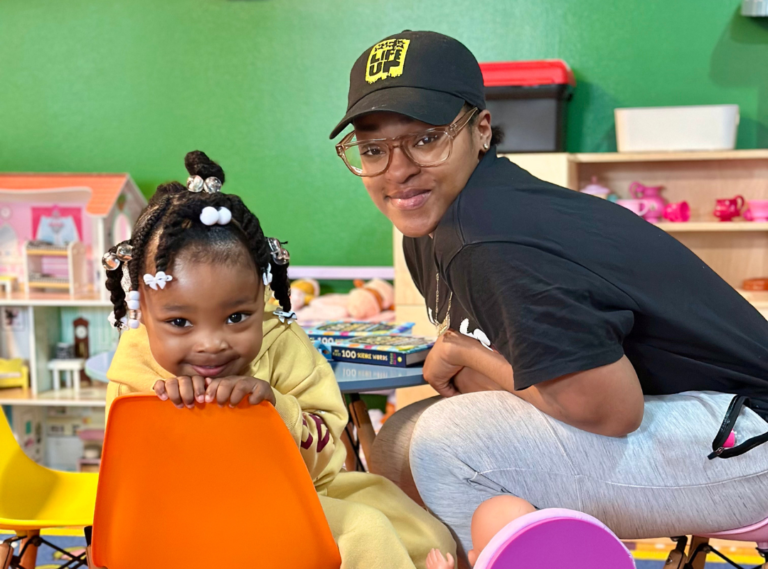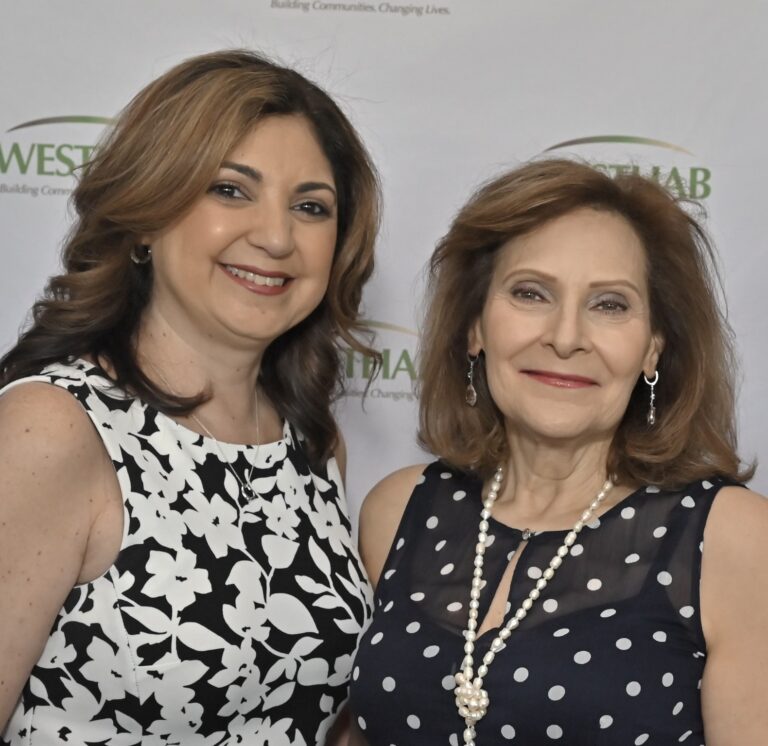
A Fast-Growing Organization and a Faster-Spreading Virus—How Westhab’s HR Team Has Adapted to Thrive

You have to adapt to survive. This phrase feels more fitting to a National Geographic documentary than to a nonprofit’s blog post, but in the past two years, it’s been the reality for human resources professionals. Daily responsibilities like payroll and employee relations have been pushed to the sidelines as HR has become every company’s nurse’s office.
Seven years into her time at Westhab, Jinja Cuevas’ job was turned on its head. Jinja is the Vice President of Human Resources for Westhab. When she joined the company in 2014, it was just her and one other colleague in the department comfortably managing a staff of 180. Now, she leads a team of 10 that is responsible for over 730 employees. Jinja has overseen incredible growth throughout her tenure, but nothing could prepare her for the challenges that began in March of 2020.
After starting her career in human services as a grants manager and then continuing in a compliance role at a law firm, Jinja realized a passion for people operations. Jinja’s mom is a human resources consultant, so the profession was a natural choice. She went back to school for her Master’s in Human Resources and made a transition to the nonprofit sector. “I really enjoy being able to communicate with everyone, and in HR, you have the opportunity to communicate with every single person at the organization,” Jinja shared. “I think I can relate to a variety of people, and most people are comfortable talking to me.”
When COVID-19 began its descent on New York, things got very real for Jinja and Westhab’s leadership team. Pre-pandemic, Jinja’s favorite part of her job was being there for frontline staff—those working directly with clients in our shelters, affordable and supportive housing, employment centers, and youth programs. In the last two years, Westhab has added several new programs and shelters to its operations. On top of that, the addition of COVID-related responsibilities has furthered the distance between Jinja and Westhab’s frontline staff. “Now there are more layers between us and more things I’m responsible for,” said Jinja. “I don’t have direct contact as much anymore.”
As cases began to pop up throughout Westhab’s sites, tough decisions had to be made. Jinja vividly remembers one conversation with Westhab’s CEO and COO in March of 2020. This was before anyone really understood the virus, and there was still debate on the best ways to contain the spread. “We knew things were about to get really crazy,” said Jinja. Many companies began shutting down in-person operations, but that was never an option for an organization that revolves around direct service to vulnerable communities.
“Everyone was afraid. We didn’t know what this was, we just knew that it could get you very sick or kill you,” Jinja shared. “We knew that it was very contagious and that Westhab staff work in environments with very close quarters.”
Jinja led the charge as Westhab worked to gather sufficient PPE for its dozens of sites. Westhab established hazard pay and emergency sick pay to incentivize staff to continue showing up and to make sure they kept getting paid if they got sick. The HR team crafted guidelines to navigate the new climate—and have had to constantly adjust these guidelines based on CDC and local government guidance ever since.
“I feel like an expert on the symptoms and signs of COVID now,” Jinja said with a grim smile. Things have gotten personal for the HR team. “We’ve become physicians to a degree. We’re tracking employees’ signs and symptoms, who they’ve been in contact with, when they were last at work, and if they’ve seen a doctor or tested negative.” Like many of us in the early stages of the pandemic, Jinja was hoping for a vaccine to be developed and bring this initial scary chapter to a close. But vaccines were both a blessing and the next major challenge for her team. “Some employees did not want to get vaccinated until they had to,” Jinja shared.
She found it disarming—especially after dealing with the devastating loss of her father due to COVID—that so many people were unwilling to get the vaccine. “It’s hard to separate out your personal feelings from HR in general. I personally think that you should get a vaccine without question, but I can’t impose my personal beliefs and feelings on you as a professional. That was challenging for me personally and professionally.” Eventually, New York City mandated the vaccine for its employees and Westhab followed suit. “Once it became required on the New York City side and then rolled out company-wide, we saw just about everyone getting vaccinated. Our exemption number is very low.”
This period of time has required incredible resilience and quick thinking—and Jinja doesn’t think it will ever truly be over. She knows that her team will need to continue to keep up with the rapidly changing laws and regulations around the virus. “There are days when it gets to be way too much. I’m COVID fatigued. It’s tough. But I keep coming back for more.”
Jinja is proud of what her department and Westhab as a whole have been able to accomplish. “We’ve grown tremendously over these two years, and I don’t feel like HR has skipped a beat,” Jinja said. “It’s still an exciting time for Westhab. It’s exciting to be part of an organization that’s growing and making a difference. I’m proud that I still feel that way after all of the challenges.”
More than anything else, Jinja is proud of how Westhab has taken care of its frontline employees. Westhab increased its minimum wage, gave out incentives, and offered hazard pay long before receiving any guarantee of reimbursement in its contracts. Regardless of how much sick or vacation time an employee had, no one lost any pay for being out while recovering from COVID or while quarantining after an exposure. Jinja said, “I’m proud of how we’ve taken care of our people.”
There are still challenges that lay ahead, hard decisions to be made, and hard days to be had, but Jinja smiles as she shares some of the lessons she’s learned. As a professional, she’s learned to slow down even in the most high-pressure moments. “There is no cookie-cutter response to a lot of the things we’re dealing with,” said Jinja. “Take the time to process information before you respond.” On a more personal note, Jinja said “I hope that people have learned that life is really short. You can’t take anything for granted. Don’t have any unspoken words with people who you care about. We all need to take a step back and reevaluate the life we want to live.”
“Oh”, she adds after a beat, “and get some rest. You need some self-care.”

